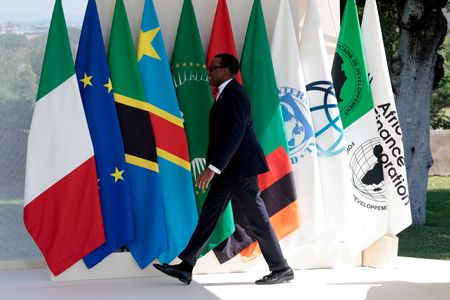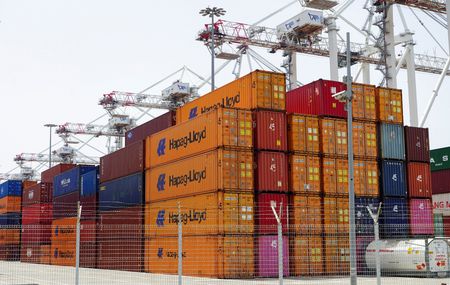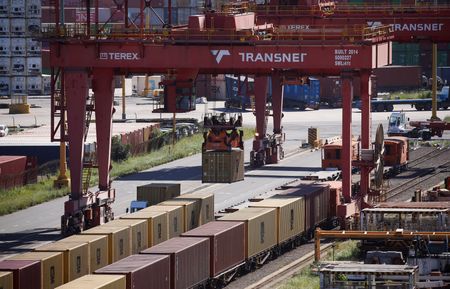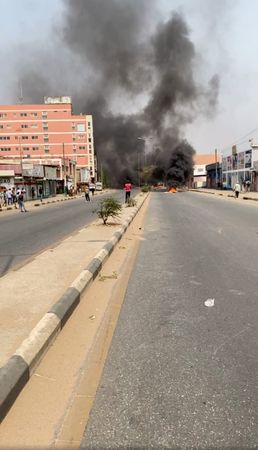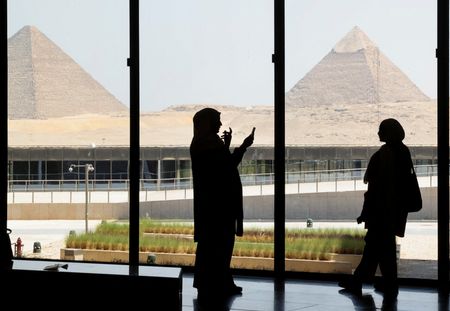By Nelson Banya
(Reuters) -Kumba Iron Ore has seen a “fundamental shift in speed” by South Africa’s government to open up state-owned logistics firm Transnet to private investment, its chief executive, Mpumi Zikalala, said on Tuesday.
Transnet has struggled to provide reliable freight rail and port services, hit by equipment shortages and maintenance backlogs after years of under-investment. Its capacity has been further constrained by widespread cable theft and vandalism.
In March, the government sought information from potential partners for Transnet’s three corridors that haul coal and chrome, iron ore and manganese, as well as containers and automotives, to ports.
The move is expected to lead to a formal bidding process before the end of the year.
Kumba and its bulk mineral exporting peers have made submissions on private investors’ participation in the 860-km (534-mile) line that runs to the Saldanha Bay port from the company’s flagship Sishen mine in the Northern Cape, Zikalala said.
“In the discussions around the openness for greater private sector partnership, I have certainly seen a fundamental shift in speed that wasn’t there a couple of years ago and that’s certainly encouraging,” she added.
Zikalala said part of the submission by Kumba and other mineral exporters was that Transnet should not sell its assets.
“We think that strategic assets should continue belonging to government,” she said. “Mines have a finite life, but governments will always, or should always, be there.”
On Tuesday, Kumba reported flat half-year headline earnings of 7.14 billion rand ($397.77 million) as weak global steel demand affected iron ore prices.
The company said its average realised free-on-board export price was $91 per wet metric ton (wmt) during the six months, down 6% from $97 per wmt previously.
Soft domestic steel demand and a weak property sector in major iron ore importer China pushed prices lower during the period, Kumba said.
The company declared an interim dividend of 16.60 rand.
($1=17.9499 rand)
(Reporting by Nelson Banya; Editing by Eileen Soreng and Clarence Fernandez)




